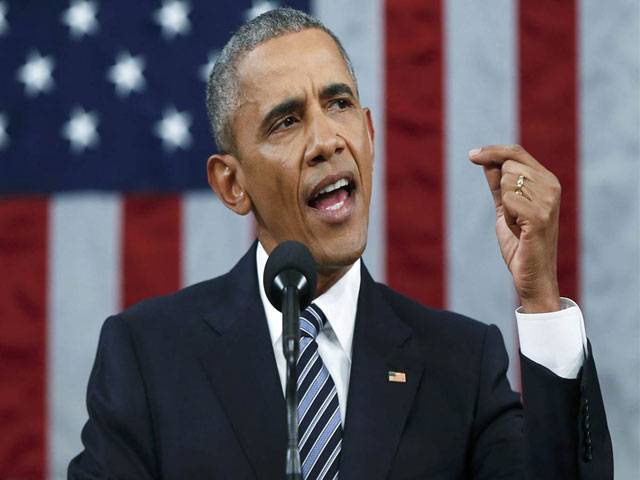WASHINGTON - The death of Taliban leader Mulla Akhtar Mohammad Mansour “marks an important milestone” in the US effort to bring peace to Afghanistan, President Barack Obama said Monday.
“We will work on shared objectives with Pakistan, where terrorists that threaten all our nations must be denied safe haven,” he said in a statement issued by the White House.
Obama thanked members of the US military and intelligence community and said they “have once again sent a clear message to all those who target our people and our partners — you will have no safe haven.”
“After so many years of conflict, today gives the people of Afghanistan and the region a chance at a different, better future,” the president added.
Several US and Afghan officials have claimed Mansour was the key obstacle to the peace process and posed a threat to US forces in Afghanistan, a message Obama repeated Monday.
President Obama is currently in Vietnam and will travel to Japan for this week’s G7 Summit.
The strike on Mansour, he said, “removed the leader” who had rejected Kabul’s efforts at negotiating a peaceful end the conflict and led an organization that “continued to plot against and unleash attacks on American and coalition forces, to wage war against the Afghan people and align itself with extremist groups like al-Qaeda.”
The president urged the Taliban to “seize the opportunity to pursue the only real path for ending this long conflict – joining the Afghan government in a reconciliation process that leads to lasting peace and stability.”
Obama’s remarks came as Nato Secretary-General Jens Stoltenberg issued a statement in Brussels, saying that under Mansour’s leadership Taliban had caused the death and suffering of countless civilians and posed “a major daily threat to the forces of the US and other Nato allies and partners.”
Stoltenberg reiterated the international coalition’s commitment to its train-advise-assist mission in Afghanistan to ensure the country will not again become a safe haven for terrorists. “This is the time for Afghans to talk to Afghans, so that Afghanistan can develop in peace and security,” Stoltenberg said.
Afghan President Ashraf Ghani and Chief Executive Abdullah Abdullah also hailed the strike, describing Mansour as responsible for a sharp escalation in bloodshed and an obstacle to a negotiated peace.
The strike came as Pakistan faced mounting pressure from US and Afghan officials to take action against insurgent groups after months of failed attempts to bring the Taliban to the negotiating table.
Western intelligence agencies and some officials have long claimed that after the US-led invasion that overthrew the Taliban regime in 2001, former members of that government and its military found refuge in the Pakistani border town of Quetta and that many remain there and in Karachi.
In a statement Sunday, Pakistan’s Foreign Ministry said it learned of the strike only after it occurred. It called the incident a violation of its sovereignty, an issue it said has been raised with US officials in the past.
Pakistan has consistently rejected US and Afghan claims that it harbours insurgents, maintaining that peace talks were “the only viable option for lasting peace in Afghanistan.”
Kabul stepped up its criticism of Islamabad for failing to bring the Taliban to the negotiating table. After a massive suicide bomb attack killed nearly 70 people and injured hundreds more in Kabul on April 19, Ghani said he would no longer seek Islamabad’s help to woo the Taliban.






